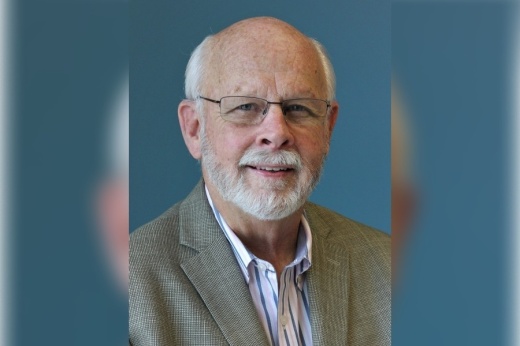In 2014, the EFSC was formed—a collaboration of the Dallas County Probate Courts, Dallas County District Attorney's Office and The Senior Source, a nonprofit social services agency—to address the financial exploitation of seniors.
Benton gives educational seminars discussing senior scams throughout the year. Email him at [email protected] to learn more about these presentations.
Benton spoke with with Community Impact and explained prevalent senior-targeted scams, how to identify them and tips on avoiding being scammed through emailed responses. This interview has been edited for length and clarity.
What services does the Elder Financial Safety Center provide?
Elder Financial Safety Center provides a three-pronged approach, offering financial safety to seniors through prevention at The Senior Source, protection through Dallas County Probate Courts and prosecution through Dallas County District Attorney’s office.
70% of all the personal wealth in this country is owned by baby boomers and above. The youngest boomer is now 60 this year, so that 60+ have the money. Seniors begin experiencing cognitive difficulties ... [They] struggle keeping up with the rapidly advancing technology and the scammer techniques continue to get more and more sophisticated. More people live alone today than ever before, attempting to age in place. Through the computer, they are opening portals into their home and interacting with persons who they would not let in their front door.
What scams should seniors look out for?
- Romance scam: They always have a reason they can’t meet in person or use Skype or Facetime. The people in your life you should trust seem concerned about the relationship. The supposed photos show up in Google picture search as someone else. They always eventually ask you for money.
- Government agencies scam: The caller says, “Your social security number has been stolen” or “This is the IRS, you owe us money.” The government never calls, they write.
- Tech support scam: Your computer goes haywire from a hack and it screams at you, telling you to call Microsoft immediately. Here's their number. They answer on the first ring at 10 p.m. at night ... They tell you they are seeing hackers getting into your bank account.
- Other scams pertain to grandson imposters, lottery [winnings], family emergencies and Medicare.
First of all, you report it to the Federal Trade Commission or the FBI. That just captures data. The FBI are not standing ready to take their case personally. They can't do that because there's too much going on, but it helps them build a case so they can go to Congress to get more money. Scams and frauds are perpetrated by people that you'll never meet. You'll never see them in person. They cover their tracks. So that money, once you send it, whether it's a gift card or anything of Bitcoin, that money is irreparable and it's never going to be brought back. You just have to face up, and we put their lives back together as much as we can.
What tips do you recommend on how to avoid scams?
Quit answering your phone, allow it to go to voicemail and never click on a text.
Who is eligible to receive services that The Senior Source provides and are there costs involved?
Seniors 50+ in Dallas and surrounding counties are eligible. There are no charges to receive the services because The Senior Source is a nonprofit organization funded by private donations, various foundations and grants.
What else?
The worst case I've had this year was a guy that clicked on a Geek Squad text saying basically, your two year maintenance plan is up at the end of the month. Let us know if there's an issue. It was a scam. He knew he didn't have a Geek Squad maintenance agreement, but he clicked on it. It took them about 45 days to groom him into thinking that he was being defrauded. They said they were with the Federal Reserve and law enforcement, they were going to take care of him. And in the end, he lost $545,000. This guy was an Air Force Academy grad, a fighter pilot in Vietnam, an airline pilot for American Airlines, the caregiver for his wife. He is living alone at 85 years old in their apartment, and he loses all that.
Learn more
Benton gives educational seminars discussing senior scams throughout the year. Email him at [email protected] to learn more about these presentations. To learn more about The Senior Source, visit www.theseniorsource.org.





